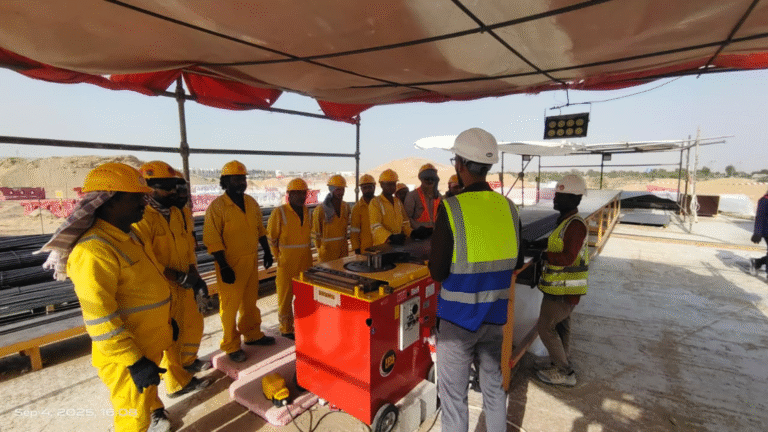Scope of Environmental Studies
Environmental studies is an ever-evolving academic field that addresses the interaction between humans and their environment. As the global population continues to grow and industries expand, environmental concerns such as climate change, pollution, and the depletion of natural resources have become urgent global issues. The scope of environmental studies lies in understanding these challenges and equipping individuals with the knowledge to mitigate them through sustainable practices.
What is Environmental Studies?
Environmental studies is an interdisciplinary field that integrates information and methodologies from various disciplines such as biology, chemistry, geology, ecology, geography, political science, and sociology. It seeks to understand how natural systems function, how human activities affect these systems, and what can be done to minimize harmful impacts.
This subject not only examines the science of the environment but also addresses policies, ethics, and strategies that govern human interactions with the natural world. Students and professionals engaged in this field are trained to approach environmental issues holistically, using knowledge from multiple domains.

Why is Environmental Studies Important?
Understanding the scope of environmental studies is crucial for several reasons:
Global Environmental Challenges: Issues such as climate change, global warming, deforestation, loss of biodiversity, and pollution are threatening ecosystems and human livelihoods. Environmental studies help in analyzing and solving these problems.
Sustainable Development: The discipline supports sustainable practices by guiding how we can use natural resources efficiently without compromising the ability of future generations to meet their needs.
Public Awareness: Environmental studies promote public understanding of environmental issues and the role individuals and communities can play in fostering a healthier planet.
Policy and Regulation: This field plays a critical role in shaping environmental policies and regulations at local, national, and international levels.
Key Areas within the Scope of Environmental Studies
The following domains illustrate the breadth and depth of environmental studies:
1. Ecology and Ecosystems
Understanding the relationships between living organisms and their environments. This includes studying food chains, habitats, and biodiversity conservation.
2. Environmental Pollution
Exploring various forms of pollution (air, water, soil, noise) and their effects on health and ecosystems. It also covers pollution control measures and sustainable alternatives.
3. Natural Resource Management
Focusing on the responsible use and conservation of resources like water, forests, minerals, and fossil fuels to ensure long-term sustainability.
4. Environmental Legislation
Learning about environmental laws, standards, and international treaties that guide environmental protection efforts.
5. Environmental Impact Assessment (EIA)
Studying how proposed industrial or development projects affect the environment and how to minimize negative impacts.
6. Climate Change and Global Warming
Understanding the science behind climate phenomena, greenhouse gas emissions, and global initiatives such as the Paris Agreement.
7. Sustainable Development
Exploring how environmental, social, and economic factors can be balanced to achieve long-term sustainability.
8. Environmental Ethics
Analyzing human responsibility toward the environment and encouraging ethical practices in resource use and conservation.
Career Opportunities in Environmental Studies
The demand for environmental professionals is growing across sectors, including government agencies, NGOs, industries, educational institutions, and consultancy firms. Career roles include:
- Environmental Consultant
- Sustainability Officer
- Environmental Policy Analyst
- Climate Change Analyst
- Wildlife Conservationist
- Environmental Scientist
- EHS (Environment, Health & Safety) Manager
- Researcher and Academic
These roles focus on research, policy development, compliance auditing, impact assessment, and more.
The Role of Environmental Studies in Society
Environmental studies does not only support scientific and technical advancements; it also plays a vital societal role. It fosters:
- Community Engagement: Encourages public participation in environmental decision-making and local conservation efforts.
- Global Collaboration: Promotes cooperation among nations to address environmental issues that transcend borders.
- Education for Sustainability: Instills a sense of responsibility and empowers individuals with the skills to make informed decisions.
Environmental Certifications to Advance Your Career
For those who wish to deepen their expertise and credentials, M2Y Global Academy offers internationally recognized environmental certifications that align with global standards and industry needs:
1. IEMA Environmental Sustainability for Managers
An ideal program for professionals responsible for embedding sustainability into the core of business strategy. This course provides tools to drive environmental improvements and meet corporate social responsibility goals. Click here to see more details: https://m2yacademy.com/iema/
2. OTHM Level 7 Diploma in Environmental and Sustainability Management
A UK-accredited qualification equivalent to a Master’s level program. It is designed for senior managers and professionals looking to lead sustainability and environmental management practices in complex organizations. Click here to see more details: https://m2yacademy.com/environmental/
3. NEBOSH Environmental Management Certificate
A globally respected certification offering a thorough understanding of environmental management systems, risk assessment, and regulatory compliance. Suitable for health and safety professionals and those aiming to expand their scope into environmental roles. Click here to see more details: https://m2yacademy.com/nebosh-ems/
These programs enhance employability and provide practical knowledge required in modern environmental careers.
Conclusion
The scope of environmental studies is broad, dynamic, and deeply interconnected with the future of our planet. It is not just a field of study—it is a vital part of the global mission to preserve natural systems, promote sustainability, and ensure a healthy environment for future generations.
At M2Y Global Academy, we recognize the significance of this field and are proud to support individuals in gaining the knowledge and skills necessary to drive environmental change. Whether you’re beginning your journey or seeking to advance your career, understanding environmental studies is a crucial step toward making a meaningful impact.

















































